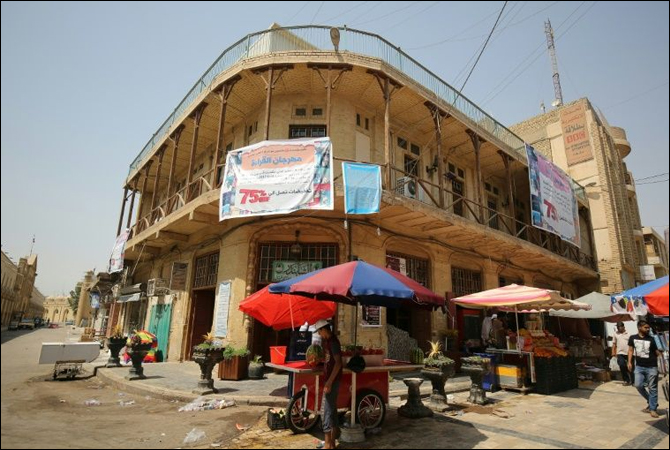Iraq cafe marks 100 years as intellectual hub
- By AFP -
- Nov 25, 2017

BAGHDAD: Seated at tables with glasses of tea in the heart of Baghdad’s bookshop district, the customers of Shabandar cafe have watched 100 years of Iraq’s tumultuous history pass by.
Since opening its doors a century ago, the establishment has become a hub of Baghdad’s intellectual life, drawing poets and politicians to its wooden benches and photo-lined walls.

“I’ve been coming here for the past 60 years,” Abdel Fattah Al Noeimi, 77, says, dapper in his spotless brown suit and matching tie.
“At nine in the morning until two or three in the afternoon, when everyone is leaving.”
Read More: Life’s no hoot for owls in Tokyo cafes, activists say
From British rule to modern-day Iraq, Shabandar has lived through the birth of a nation, the toppling of its monarchy, decades of domination by Saddam Hussein, the drama of the US-led invasion and the bloody chaos that followed.
The twists and tragedies have all left their mark on the cafe.
“Taking a seat here is like taking a seat in a history book,” Shabandar’s owner, Mohammed Al Khashali said.

When it first became a cafe in 1917, the brick and plaster building was already a local institution as it housed the printing press of merchant Abdel Majid Al Shabandar – whose name comes from Turkish, meaning “the greatest of merchants”.
Khashali – who sports a traditional white robe and beard of the same colour – took over in 1963 and made a decision that would prove defining: he banned all games, including cards and dominoes, from the cafe.
Read More: From Riyadh cafe to Twitter, Saudis hail driving ban end
While the move surprised some customers, it meant the new owner stayed true to a “promise” he had made to himself. “That this would be a place where people of culture would meet,” Khashali said.
“That is truly what happened.”
Dozens of black and white photographs covering the walls of the cafe offer a glimpse into the history of Baghdad and Iraq, chronicling some of its leading lights and others who have since slipped into obscurity.
In a golden book, a number of foreign ambassadors have left their signatures.

